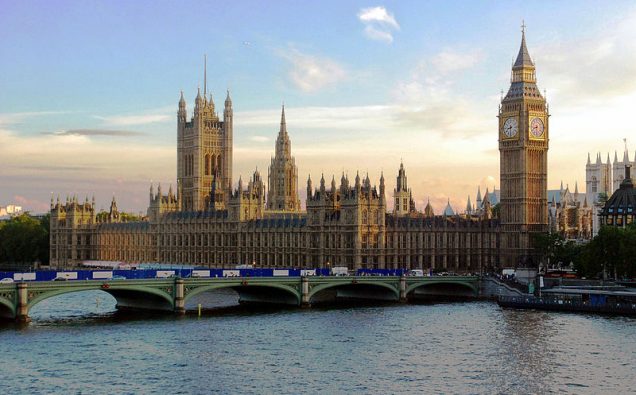
Come Thursday – and a referendum Britain could touch off reverberations all around. Voters will decide whether the United Kingdom remains part of the European Union or quit the powerful trading bloc of multi-speed economies.
The latest polls suggesting that more Britons -53 percent – now favor leaving the EU, have raised the possibility of exit, commonly known as Brexit.
Some of the apparent concerns include implications for economies and regional trade. The larger and perhaps the most immediate of all is the question over the very idea of united Europe as an economic and political powerhouse.
Factors running a little deeper would possibly include the place of an island and its people in the changing world, multiculturalism, globalization and perhaps the future of contemporary Western civilization.
But at the moment, economic issues appear to be driving international discussions that obviously involve security and political repercussions of the tumultuous times.
In Washington, the International Monetary Fund says a decision by U.K. voters to say goodbye to the EU would add to international uncertainty.
A future path will automatically require negotiations between the U.K. and the rest of the EU over the terms of its withdrawal and over the details of its future relationship with the Union.
Britain will also need to renegotiate trade relationships with the 60 non-EU economies where trade is currently governed by EU agreements.
“These negotiations could drag on for years, leading to a period of heightened uncertainty and risk aversion, which in turn would discourage consumption and investment and roil financial markets. In the long run, most formal assessments agree that the U.K. would be worse off economically if it were to leave the EU, as higher trade and financial barriers would lead to lower output and incomes.”
The Fund explored the potential impact of uncertainty on U.K. growth during the post-Brexit transition in two illustrative scenarios, referred to as the limited scenario and the adverse scenario. In both cases, the impact on output and employment could be significantly negative due to higher uncertainty.
The longer this uncertainty persists, and the less advantageous the outcome of trade negotiations for the U.K., the larger are these short- and medium-run costs, the financial institution says.
“In the limited scenario in which uncertainty is relatively moderate and the U.K. is assumed to negotiate a status similar to what exists between Norway and the EU, output falls by 1.4 percent by 2019 (compared to the baseline case in which the U.K. remains in the EU).
“In the adverse scenario of long negotiations and a default to the trade rules of the World Trade Organization, GDP plunges by 5.6 percent by 2019 (again compared to the baseline case in which the U.K. remains in the EU),” the study finds.
The United Kingdom has consistently been doing well economically. Yet in part due to uncertainty about the upcoming referendum, economic growth slowed in the first half of this year.
“If the country decides to stay within the EU, growth is expected to rebound later this year and to remain steady over the next few years. Inflation should gradually rise to target after the effects of past oil and other commodity price falls dissipate and as low unemployment helps push up wages.”
Meanwhile, in a report The Washington Post also contemplated ramifications of Britain’s exit from the EU for American businesses, which employ more than a million people there. Here is a paragraph from the paper touching on impact of such a decision.
“The United States is the largest single investor in Britain, and many firms consider it the gateway to free trade with the 28 nations that make up the E.U. Brexit would jeopardize their access to those markets, potentially reducing revenue and forcing some firms to consider relocating their European operations elsewhere. That has put corporate America onto the front lines of the campaign to keep the union together, with several of Wall Street’s biggest names donating substantial sums to the effort.”
The newspaper also quotes Angel Gurría, secretary general of the Organization for Economic Cooperation and Development, as warning that the United Kingdom’s exit would be bad for the U.K., it would be bad for Europe, it would be bad for the world, including the United States.
“You already have enough uncertainty in the world today. We don’t need more,” Gurria said.
Compounding Britain’s separation from the EU are ongoing issues like world economic fragility, and shock waves from oil-rich Middle Eastern war zones that have seen one of the biggest migration movements into Europe in recent history.













